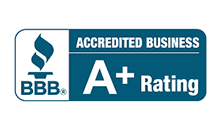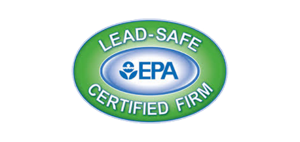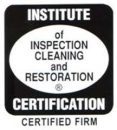Did you know that smoke damage, whether from a house fire or a contained fire, can pose significant health risks to individuals? Smoke is invasive and can penetrate various areas of the home, including HVAC vents, walls, furnishings, and electrical sockets. But it’s not just the visible damage you need to worry about. The composition of smoke is complex and often contains harmful substances such as carbon monoxide and toxins.
Smoke inhalation can lead to serious health problems, including burns to the respiratory system, oxygen deprivation, and even death. Even after the fire is extinguished, staying in a smoke-damaged house can continue to pose health risks due to toxic substances lingering in the air. It is important to have a professional fire restoration company thoroughly clean and decontaminate the property to ensure a safe environment.
Key Takeaways:
- Smoke damage can lead to significant health risks.
- The composition of smoke is complex and can contain harmful substances.
- Smoke inhalation can cause burns to the respiratory system and oxygen deprivation.
- Staying in a smoke-damaged house can continue to pose health risks.
- Professional fire restoration is necessary to ensure a safe environment.
The Invasive Nature of Smoke in Your Home
Smoke is incredibly invasive and can penetrate various areas in the home through different means, including HVAC vents, ducting, wiring, and crevices. It can travel far beyond the room where the fire originated. Even if you cannot see smoke, it is possible for smoke particles to be present in the air, posing health risks.
Smoke can infiltrate porous materials like curtains, carpets, furniture, and even plasterboard, leading to long-term health problems. Hidden smoke damage is common, with smoke residue often found behind walls, in electrical sockets, and other hard-to-reach areas. Professional smoke damage cleanup is crucial to ensure that all affected areas are thoroughly cleaned and decontaminated.
Understanding the Composition and Dangers of Smoke
Smoke is a complex mixture of heated particles and gases, with its exact composition varying depending on the materials burned, the temperature of the fire, and the available oxygen. The dangers of smoke are significant, mainly due to the harmful substances it contains.
Some of the harmful substances found in smoke include carbon monoxide, carbon dioxide, soot, tar, heavy metals, and various toxins. When inhaled, smoke can cause burns to the respiratory system, leading to oxygen deprivation and a range of health problems.
Different types of fires produce different types of smoke, each posing unique dangers. Wood fires, protein fires, and fires involving synthetic materials all release distinct compositions of smoke, which can have specific health implications.
To fully comprehend the potential health risks associated with smoke damage, it is crucial to understand the composition and dangers of smoke. By recognizing the harmful substances and understanding their impact on the respiratory system, individuals can make informed decisions to protect their well-being.
Understanding the composition of smoke and being aware of its dangers is vital for individuals who have experienced smoke damage. The presence of harmful substances in smoke emphasizes the importance of professional smoke damage cleanup and decontamination to ensure a safe living environment.
Identifying the Health Implications of Smoke Inhalation
Smoke inhalation occurs when the products of combustion are inhaled during a fire. The inhalation of smoke can have severe health implications, leading to a range of symptoms and risks. It is crucial to understand the potential consequences of smoke inhalation to ensure prompt medical attention and appropriate care.
The symptoms of smoke inhalation can vary depending on the duration and extent of exposure. Common symptoms include:
- Coughing: Smoke irritates the respiratory system, leading to frequent and persistent coughing.
- Shortness of breath: Smoke can cause difficulty in breathing and a feeling of breathlessness.
- Hoarseness: Vocal cords can be affected by smoke inhalation, resulting in a hoarse or raspy voice.
- Eye irritation: Smoke can cause redness, itching, and irritation of the eyes.
- Skin problems: Prolonged exposure to smoke can lead to skin rashes, itching, or other dermatological issues.
- Headache: Smoke inhalation can trigger headaches and migraines due to the inhalation of toxic substances.
- Nausea and vomiting: Ingestion of smoke particles can result in stomach-related symptoms such as nausea and vomiting.
- Mental confusion: Inhalation of smoke can impair cognitive function, leading to confusion and disorientation.
- Loss of consciousness: In severe cases, prolonged exposure to smoke can cause loss of consciousness.
Smoke inhalation can lead to asphyxiation, either by depleting oxygen or by irritating and damaging the airways and lungs. It can result in respiratory issues, permanent lung damage, and even death in extreme cases. The risks of smoke inhalation are particularly high for individuals with pre-existing respiratory conditions, the elderly, children, and those with compromised immune systems.
Prompt medical attention is necessary for anyone who has inhaled significant amounts of smoke. Healthcare professionals can provide the necessary treatment and support based on the severity of the symptoms and individual circumstances. It is important to follow the recommended medical advice to minimize the long-term health consequences of smoke inhalation.
Can Smoke Damage Make You Sick?
Smoke damage can have significant health consequences due to the harmful substances present in smoke. Prolonged exposure to smoke particles, whether from a recent fire or residual smoke in a previously damaged house, can pose various health risks.
Even if the visible smoke damage is minimal, the toxic substances in smoke can still be present and affect your health. These substances can irritate the respiratory system, leading to respiratory issues such as coughing, wheezing, and shortness of breath. Additionally, exposure to smoke can cause skin irritations and allergic reactions in some individuals.
It is crucial to have professional smoke damage cleanup and decontamination to ensure a safe and healthy living environment after a fire incident. Professional restoration companies have the expertise and equipment to thoroughly clean and remove smoke particles and harmful substances from various surfaces and air ducts.
By addressing smoke damage promptly, you can minimize the potential health risks associated with smoke exposure and ensure a safe living environment for yourself and your family.
Conclusion
Smoke damage poses a significant health risk to individuals exposed to it. The invasive nature of smoke allows it to infiltrate various areas of a home, even beyond the room where the fire originated. The composition of smoke includes harmful substances that can cause burns to the respiratory system, oxygen deprivation, and other health complications. Understanding the health implications of smoke inhalation and the associated risks is crucial for ensuring the well-being of those affected.
To mitigate the health risks of smoke damage, prompt and thorough cleanup and decontamination by professional fire restoration companies are essential. These experts have the knowledge, equipment, and experience to effectively remove smoke residue and eliminate harmful substances. By entrusting the cleanup to professionals, homeowners can create a safe and healthy living environment for themselves and their families.
When it comes to smoke damage, it is important to prioritize the health and safety of those affected. From the initial assessment to the final restoration, professional cleanup services play a vital role in mitigating the health risks associated with smoke damage. By addressing the invasive nature of smoke and understanding its composition and dangers, homeowners can take the necessary steps to protect their well-being and ensure a clean and decontaminated living space.
FAQ
Can smoke damage make you sick?
Yes, smoke damage can pose significant health risks. Smoke is invasive and can penetrate various areas of the home, containing harmful substances that can cause burns to the respiratory system, oxygen deprivation, and other health complications.
What is the invasive nature of smoke in your home?
Smoke is incredibly invasive and can penetrate various areas in the home through different means, including HVAC vents, ducting, wiring, and crevices. It can travel far beyond the room where the fire originated, posing health risks even if you cannot see visible smoke particles.
What are the health implications of smoke inhalation?
Smoke inhalation can lead to a range of health problems, including coughing, shortness of breath, eye irritation, skin problems, headache, nausea, and mental confusion. It can also cause burns to the respiratory system, oxygen deprivation, and even death. Prompt medical attention is necessary for anyone who has inhaled significant amounts of smoke.
How does smoke damage make you sick?
Prolonged exposure to smoke particles, whether from a recent fire or from residual smoke in a previously damaged house, can lead to respiratory issues, skin irritations, and other health problems. Even if the visible smoke damage is minimal, the toxic substances can still be present and pose a risk to health.
What is the importance of professional cleanup after smoke damage?
Professional fire restoration companies can thoroughly clean and decontaminate the property, ensuring a safe and healthy living environment. They can address hidden smoke damage, remove toxic substances, and mitigate the health risks associated with smoke damage.


















